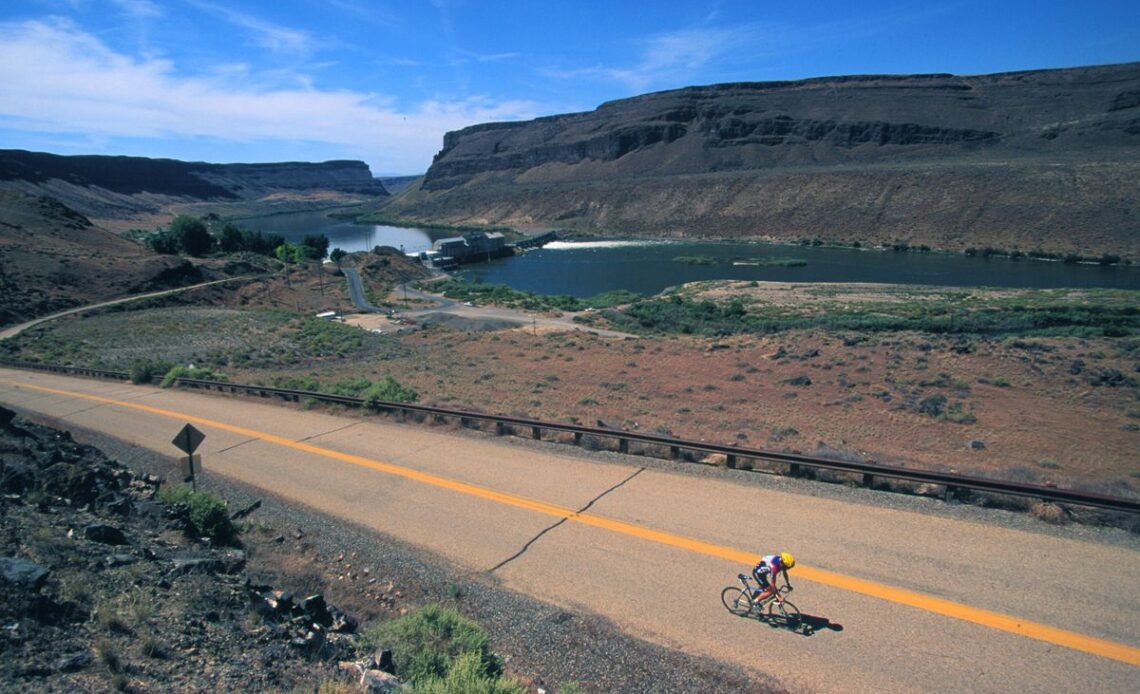Idaho’s Women’s Challenge was a stage race that pushed the boundaries in women’s cycling during its 19-year run, with one edition deemed so excessive by the UCI, they refused to sanction it at all.
In 1990, Jim Rabdau, organiser of the Women’s Challenge, wanted his race to make a statement to mark the centenary of their home state of Idaho.
Idaho is affectionately known as the ‘gem state’ thanks to the multitude of precious stones its landscape contains. Its vast open spaces, empty countryside and extensive mountain ranges make the western US state a perfect cycling playground, even if it did have almost no cycling heritage to speak of. This was the seventh edition of Rabdau’s race, and it was growing in stature each year, but with such a reason to celebrate, he wanted to create an event never done before, something that had the scale to live up to Idaho’s expansive landscape.
Rabdau created a race route that covered a mammoth 17 stages over 16 days, taking in a total distance of 1,067 kilometres with 6,705 metres of climbing. In 1984, the inaugural edition of the Tour de France Féminin may have featured 18 days’ racing and covered 1,080km across France, as the women rode a few hours ahead of the men’s race, but Rabdau’s stages were longer on average and even featured one at 129km alone, a distance that broke all official guidelines for what was accepted in women’s racing. The race didn’t go unnoticed, and the UCI refused to sanction it at all.
In a memo that’s now notorious, the governing body sent Rabdau a letter citing the race’s “excessive number of stages,” “excessive individual stage distances,” “excessive climbing” and an “excessive duration” as its list of reasons for denying it – no sanction meant no spot on the official international calendar, no vital UCI points available to riders that lined up there and it would restrict which European teams could come to race. Men’s racing, by note of comparison, had no such similar restrictions with the Tour de France that year featuring multiple stages over 200km each.
Rabdau didn’t flinch, and went ahead with the race regardless. He even turned their newfound reputation as rebels to cycling’s conformity into a marketing plot, printing t-shirts emblazoned with “Let’s get excessive in Idaho”.
“When the UCI decided not to sanction us, I decided to ignore them,” Rabdau, who passed away in 2013, said in a 1997 interview with Sports Illustrated….
Click Here to Read the Full Original Article at CyclingNews RSS Feed…

